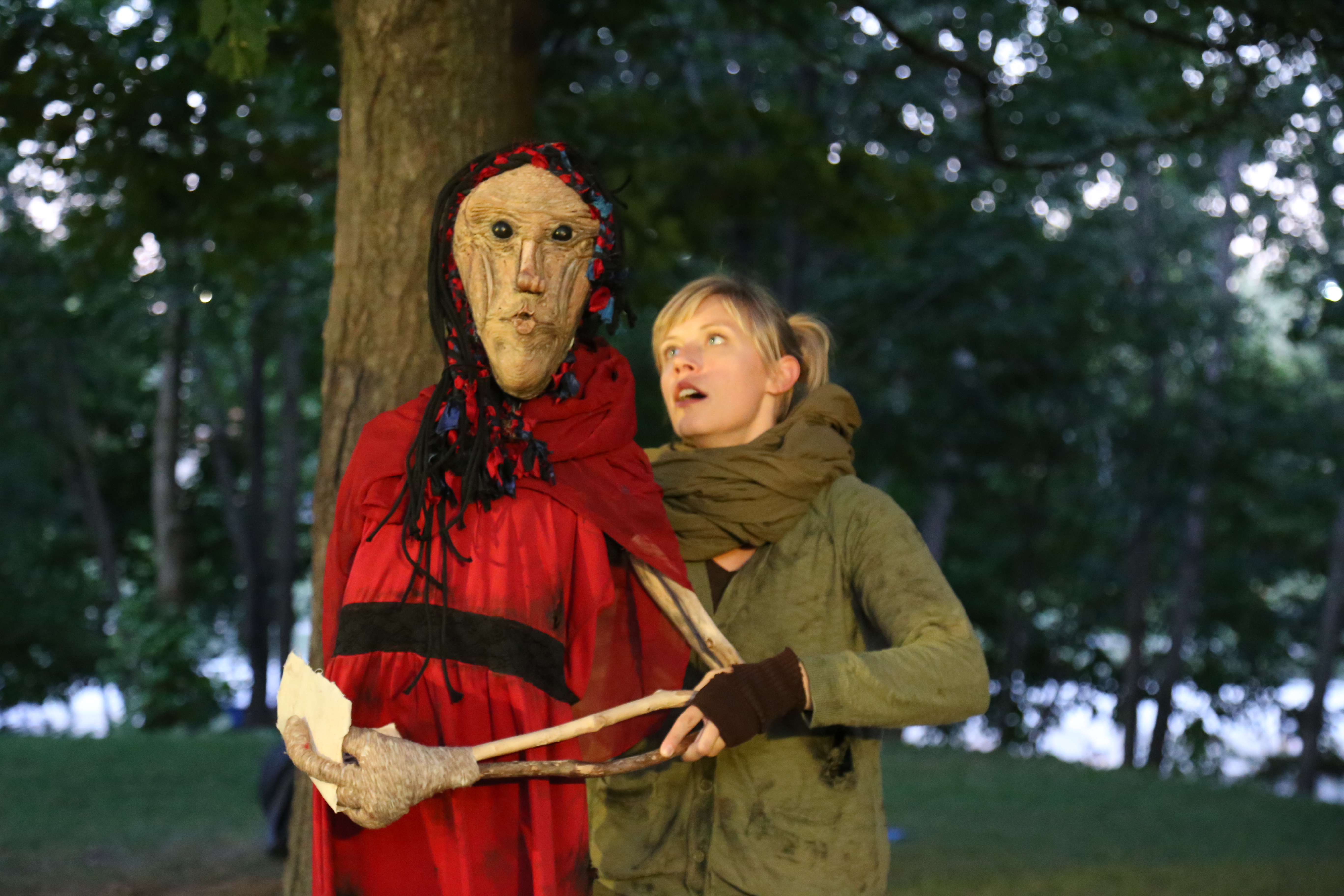


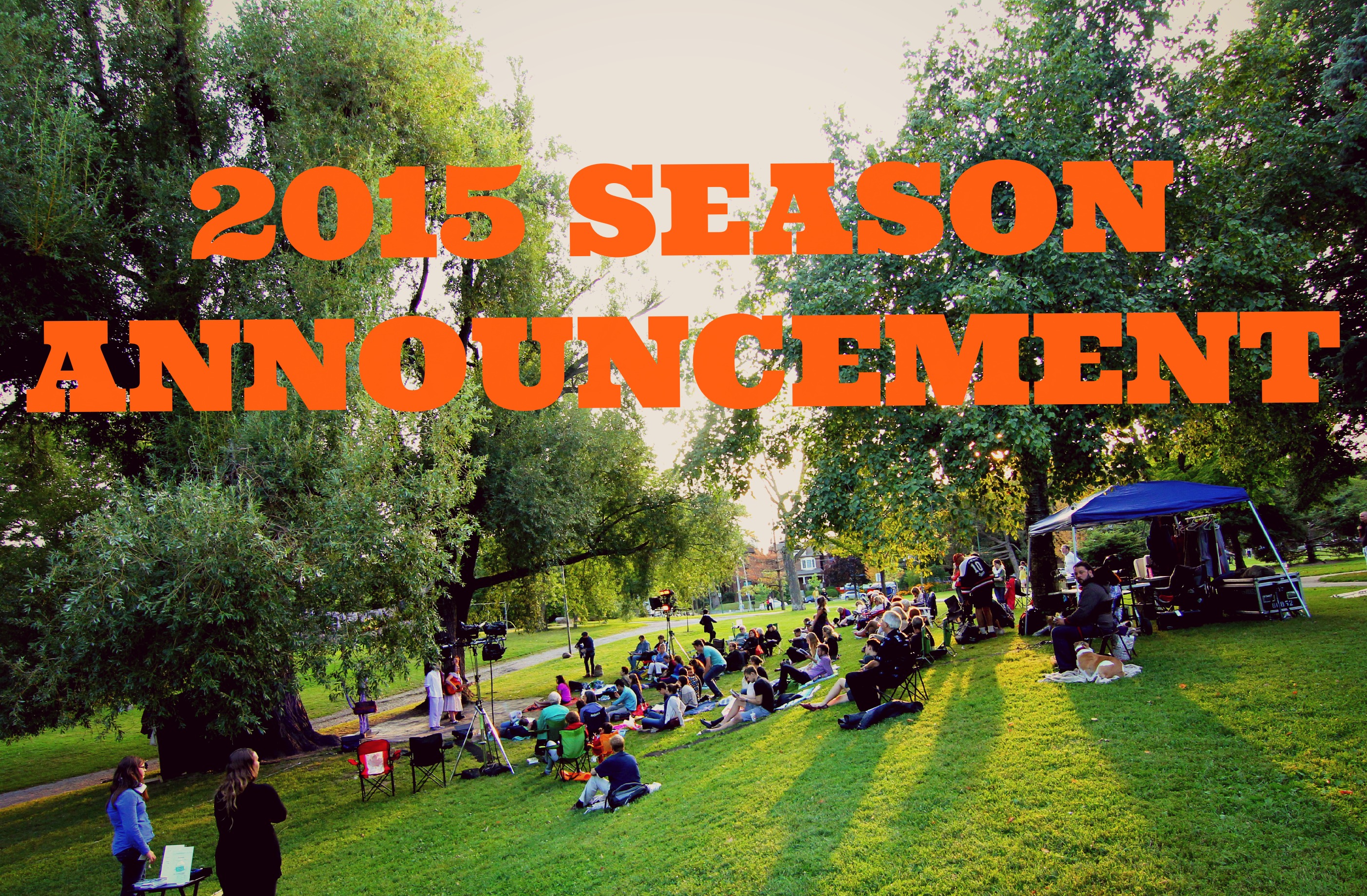
I love Macbeth. It’s one of my favourite plays to read, to speak, or to perform in (I played Malcolm under the direction of Nick Hutchinson in theatre school). The visceral imagery that Shakespeare uses in his writing is unparalleled anywhere else – it’s incredible. And now, this coming summer, I couldn’t be more excited to be directing it with Shakespeare in the Ruff. But ironically, as an audience member, I’ve often had a hard time watching it. The play asks us to watch the fall of a tyrannical, blood-thirsty, Evil-with-a-capital-E madman. I’m often unsure if I’m meant to enjoy the blood bath as I would in a horror flick or be disgusted by the tyrant’s inhumanity. In either case the result is that I disassociate with Macbeth’s character, and lose the point of the play. So what are we going to do differently? ENTER THE PUPPETS!
My first introduction to puppetry was 8 years ago, by a great man named Zach Fraser who directed me in a show about WWII called “…and stockings for the ladies” by the ever inventive RustWerk Company. One component of the show featured three puppets speaking to their survival of the concentration camps. Yes, I was thinking the same thing: puppets + concentration camp = this is not going to go well. But their moving monologues were what the audience connected with most. Something about the simplicity, fragility, and naivety inherent in those puppets made them immediately sympathetic. A puppet, unlike a human actor, is clinging to life every moment they are on stage. The audience is directly responsible for that puppet’s existence – it’s their imagination that allows the puppet to live, and a unique bond is formed between them. Kind of like watching your child take its first steps.
It’s this aspect of puppetry that I want to explore with the story of Macbeth. I’m interested in a figuratively and literally fragile Macbeth built of wood and paper. A man, filled with naivety, exposing his doubts and fears to an audience who is responsible for giving him life. I would be more willing to go on a journey with Macbeth if I could see both his emotional and corporal fragility through everything he does. That’s exactly what we get with puppets.
And I haven’t even mentioned all of the supernatural stuff in the play that’s way more fun in the world of puppetry. Puppets aren’t bound by the laws of physics, and so can do all sorts of inhuman things. Witch puppets?! Are you kidding me?!
The real challenge is going to be bringing together the worlds of puppetry and Shakespearean text. Luckily we got to spend a week developing ideas thanks to funding from the Ontario Arts Council. We already have some exciting things up our puppet sleeves and we’ve embarked on a rather drastic adapting process, letting the aesthetic choice of working with puppetry guide our approach to the text.
And the secret weapon that I’m most excited about: I’ve brought on Zach Fraser, the man who taught me everything I know about puppetry, to build our puppets and work with us as a puppet choreographer throughout rehearsals.
And now, a word from the man himself:
Ok. Confession. I don’t always understand Shakespeare!
His words can be poetic & powerful, but at times, I get over-whelmed by the language. Through the years, I’ve seen many Shakespeare-in-the-Park productions. In Toronto… In Montreal… In Halifax… Each has its own charm. But I often leave the performance feeling like I don’t understand the story as well as I should.
This summer, with Shakespeare in the Ruff, we intend to create a truly accessible, visceral production that touches the soul and transports the spirit…
…using puppets.
I don’t believe I’ve ever seen a production of Shakespeare as unique in its vision as that which we are venturing to create this summer in Withrow Park. Shakespeare’s language can be exquisite. The plight of puppets can be absurd, splendid, and heart-wrenching. Puppets are the masters of high comedy & deepest drama, so partnering them up with Shakespeare makes perfect sense to us.
There’s a reason why most theatre companies avoid puppetry: they add a LOT of extra work to a production. But there’s also a reason why some of us keep getting drawn back to puppets; because they are spellbinding, seductive, magical, and they have the power to win our hearts instantaneously! They appear to be naïve, but their power is great.
Ruff is an ambitious, motivated, slick young company of talented & bold artists. I applaud the company for their willingness to respect, revere, and yet reinvent Shakespeare’s plays. It’s an honour to join forces with these Ruffians this summer.
Zach Fraser
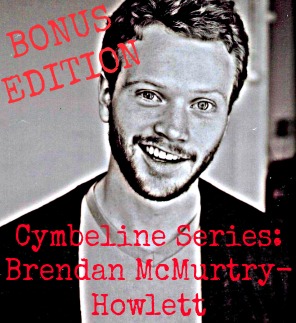
We are so thankful to directors Anita Rochon, Dawn McCaugherty, and Antoni Cimolino, who have shared their take on Cymbeline with us over the past month in our Cymbeline Series. Now that Ruff’s production is up and running, Brendan McMurtry-Howlett, our Artistic Director and director of Cymbeline’s Reign, tackles the same three questions we put to these thoughtful and generous theatre practitioners.
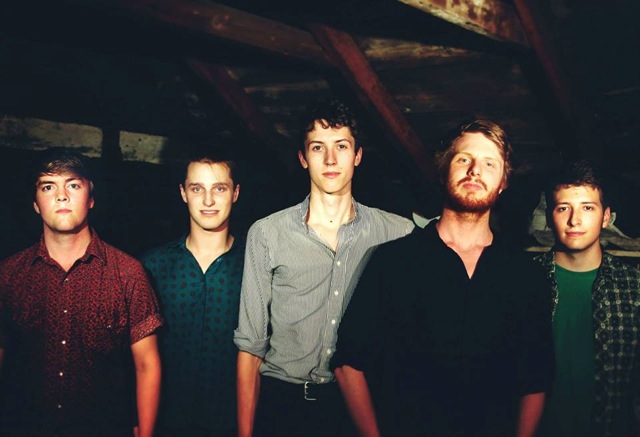
Ptarmigan (playing August 30th)
by General Manager and Resident Musician, Brooklyn Doran
Our production of Cymbeline’s Reign begins tomorrow night and our pre-show music series is going to be off the hook! The ‘Between the Trees’ pre-show music series sees local and emerging musicians share in our evening of magic by performing a half-hour of music before our mainstage production. This year we are inviting back some seasoned veterans and familiar faces, as well as welcoming some brand new emerging talents to the stage and we couldn’t be happier!
Every musician featured this year is mega-talented! If you’re in the neighbourhood, I’d suggest coming back to the park every evening to feast your ears on some of these artists’ offerings. It’s an incredible way to find out about new music, and experience the magic of Shakespeare in the park at the same time! If you like what you’re hearing, many of them will have their music for sale at our Box Office .
Here is a little preview of some of the artists who’ll be joining us this year. All three of these feature a little bit of banjo!
This year we’re excited to welcome back Three Seasons and The Move who played opening night for our production of Richard III last year. Three Seasons and The Move is an eclectic group of musicians who straddle folk, pop and rock genres. Their music is funky, danceable, timeless and Canadian. If you didn’t catch them last year between the trees, now is definitely the time. Your toes will be tapping and your hearts will be soaring. Preview track here
Crooked House Road is a Toronto-based indie, folk, pop outfit comprised of Shaina Silver-Baird (lead vocals/violin), Mirian Kay (vocals/guitar) and Tom Mifflin (vocals/piano), joined by Derek Gray (percussion), Darren Eedens (banjo) and Matthew Riggs (bass). Folk music wrapped in delicious harmony, Crooked House Road helmed by Shaina Silver-Baird’s powerhouse vocals is a band to watch out for. Foot-stompin’ fun- Crooked House Road will get you dancing up out of your seats and revved up for an evening in the park. The raw power and emotion of the vocals paired with the incredible musicianship of this band makes for a sweet, sweet set that is not to be missed. Don’t believe me? Check the evidence:
[youtube_video] KwzCgCysI_A [/youtube_video]
Ruff Artistic Director, Brendan McMurtry-Howlett, isn’t the only one in the McMurtry clan overflowing with talent. We’re thrilled that cousin Peter McMurtry’s band, Ptarmigan, is returning this summer to bless our ears with their music! If you haven’t heard of Ptarmigan yet, I suggest you come to Withrow Park on August 30th to bask in the glory that is their catchy, brilliantly-crafted folk music. It is the perfect score for watching the last rays of sun drain from the summer sky before the park is lit with the explosive performances in our production of Cymbeline’s Reign. Preview track here
Can’t make any of the above dates? Don’t fret! Every single evening is sure to please with music that is equally impressive and beautiful. The full list of our ‘Between the Trees” performers can be found HERE.
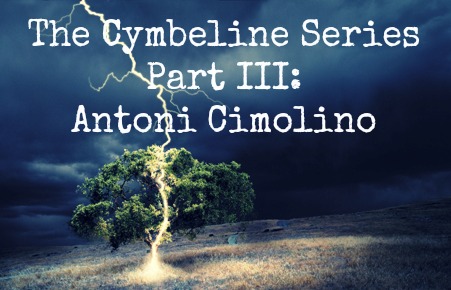
 Antoni Cimolino is the Artistic Director of the Stratford Festival, where this season he directed King Lear and The Beaux’ Stratagem. Stratford: Directing credits include Mary Stuart; The Merchant of Venice; Cymbeline; The Grapes of Wrath; Bartholomew Fair; Coriolanus, with Colm Feore and Martha Henry; As You Like It, featuring original music by Barenaked Ladies; King John; Love’s Labour’s Lost, with Brian Bedford; Twelfth Night, with William Hutt; The Night of the Iguana; and Filumena, with Richard Monette. Among his other accomplishments, Mr. Cimolino was instrumental in establishing the Festival’s Endowment Foundation, which has raised more than $50 million to date, as well as in the renovation of its Avon Theatre and the creation of its Studio Theatre. Elsewhere: The Canadian première of ENRON (Theatre Calgary); Twelfth Night (Attic Theatre, Detroit); A Woman of No Importance (Hilberry Theater, Detroit). A champion of the arts and culture, Mr. Cimolino serves as the National Chair of Culture Days, a nation-wide celebration of arts and culture in Canada. He has initiated collaborations with several prestigious theatre companies, including Montreal’s Théâtre du Nouveau Monde, Ottawa’s National Arts Centre, New York’s Lincoln Center and City Center, and the Chicago Shakespeare Theater. He also spearheaded the Festival’s involvement in a joint project with CUSO International, Canada’s international volunteer co-operation agency, to establish a performing arts and educational centre in the city of Suchitoto, El Salvador.
Antoni Cimolino is the Artistic Director of the Stratford Festival, where this season he directed King Lear and The Beaux’ Stratagem. Stratford: Directing credits include Mary Stuart; The Merchant of Venice; Cymbeline; The Grapes of Wrath; Bartholomew Fair; Coriolanus, with Colm Feore and Martha Henry; As You Like It, featuring original music by Barenaked Ladies; King John; Love’s Labour’s Lost, with Brian Bedford; Twelfth Night, with William Hutt; The Night of the Iguana; and Filumena, with Richard Monette. Among his other accomplishments, Mr. Cimolino was instrumental in establishing the Festival’s Endowment Foundation, which has raised more than $50 million to date, as well as in the renovation of its Avon Theatre and the creation of its Studio Theatre. Elsewhere: The Canadian première of ENRON (Theatre Calgary); Twelfth Night (Attic Theatre, Detroit); A Woman of No Importance (Hilberry Theater, Detroit). A champion of the arts and culture, Mr. Cimolino serves as the National Chair of Culture Days, a nation-wide celebration of arts and culture in Canada. He has initiated collaborations with several prestigious theatre companies, including Montreal’s Théâtre du Nouveau Monde, Ottawa’s National Arts Centre, New York’s Lincoln Center and City Center, and the Chicago Shakespeare Theater. He also spearheaded the Festival’s involvement in a joint project with CUSO International, Canada’s international volunteer co-operation agency, to establish a performing arts and educational centre in the city of Suchitoto, El Salvador.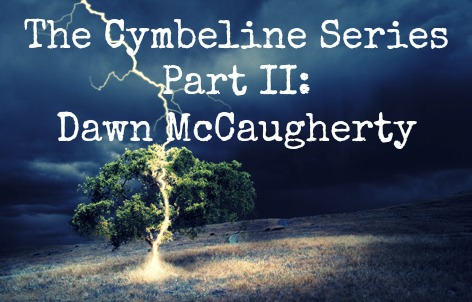
Cymbeline doesn’t land on most people’s lists of Top 10 Shakespeare plays, maybe not even Top 20. For this reason, we spoke to three people who have directed this play to get their take on a few questions that we’ve tackled since deciding to produce it.
Second up in our series, is the founding director of Shakespeare in the Rough, the company that provided the inspiration for Ruff, Dawn McCaugherty. The company was founded in 1994, and their first production was Cymbeline.
Next week we speak to someone who had the resources to hire actors to play every part in the play. Including Jupiter and his eagle, we assume.
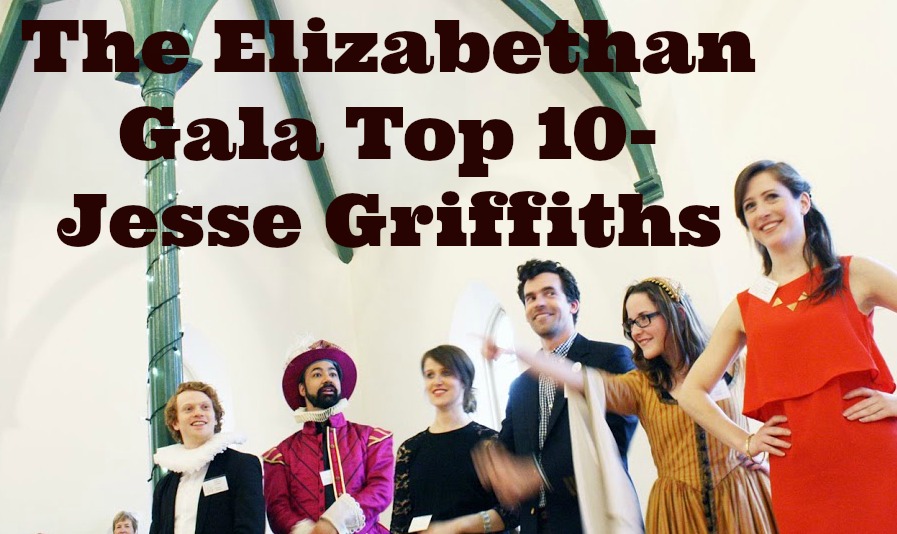
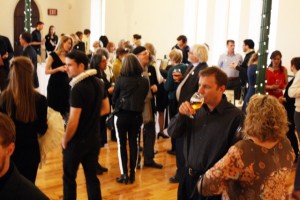 1. OUR GUESTS- If you build it they will come. You hope. So we built it…and people came! The support of our community was a truly humbling experience and we could not be more grateful. Thank you to everyone who attended. Did you miss out? Be sure to subscribe to our newsletter to receive info on next year’s event.
1. OUR GUESTS- If you build it they will come. You hope. So we built it…and people came! The support of our community was a truly humbling experience and we could not be more grateful. Thank you to everyone who attended. Did you miss out? Be sure to subscribe to our newsletter to receive info on next year’s event.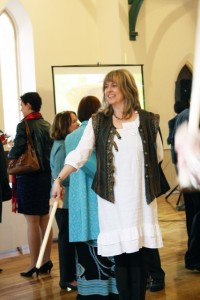
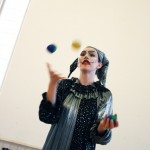
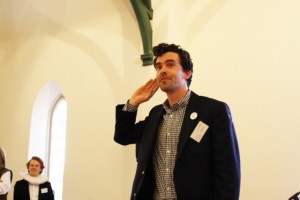
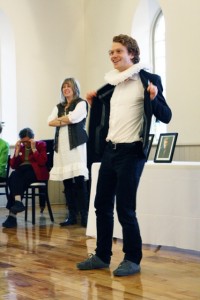

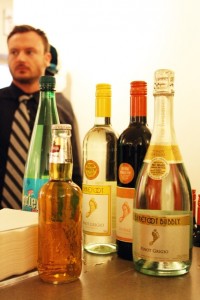
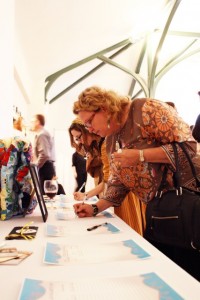
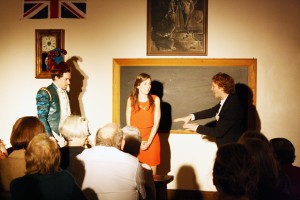
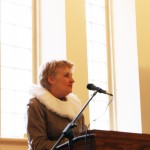
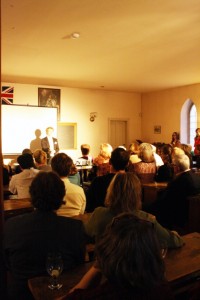
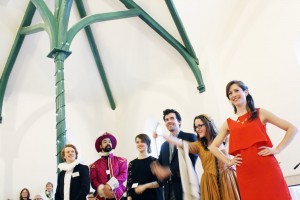

Shawn Rocheleau is a remarkable teacher who teachers high school Drama in the Toronto region. We were fortunate enough to meet Shawn a couple of years ago and our paths have continued to cross. We hope you’ll learn as much from Shawn as we have as you explore his philosophy of teaching Shakespeare and sample lesson plan, a beautiful way to introduce students to the rhythm, shape and movement of Shakespeare’s text.
I fell in love with Shakespeare early. I can remember reading (although not understanding) The Taming of the Shrew in late elementary school, and even though most of it flew right over my head, I loved the language. Even my monotonous Grade 9 and 10 English teacher’s readings of Romeo and Juliet and The Merchant of Venice couldn’t kill my love of the Bard. I played a dubious Claudius in Grade 11. After the privilege of participating in a student weekend at the Stratford Festival in Grade 13, and the disaster that was Introduction to Shakespeare, I managed to get myself through Teacher’s College and into my own English and Drama classrooms.
My love of Shakespeare became somewhat of a crusade when I realised that my fundamental premise behind teaching Shakespeare - it’s meant to be said, not read - was not a universal truth. While lip service was paid to “performing” Shakespearean plays, most of the lessons I was handed involved a lot of textual analysis and literary inquiry; very little of it was on-your-feet exploration. I was even told by a vice principal that I was “using too much Drama in my Shakespeare unit.”
The best way to get students - any student, of any level - to “get” Shakespeare is to get them on their feet. Get them moving. Give them the tools that Shakespeare himself built into the text and take the fear out of the words. Because it is those words that make Shakespeare so special and alive to audiences.
The first thing I do, to dispel the fear of the story, is to tell it. Not read it. Not show it to them in a video. Tell it. I use some snippets of text here and there, where I remember it, and I tell it from beginning to end. I leave some things out, and I try not to editorialise or assign value, I just tell them what they are going to see, hear, and eventually, be.
Then I give them the tools of the trade. We talk about the rhythm, the meter, the rhyme schemes, the words - all of the structural pieces that Shakespeare used to, well, to tell the story. We play with passages from the script we’re working on, move around the room and see what story the punctuation tells.
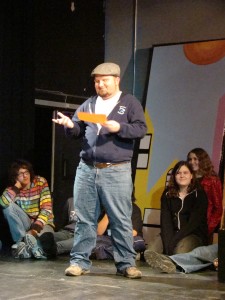 By the time we’re done, students have been playing with the text and have enough familiarity with it, so we can get down to the reading. I never send students home to read the text. We do it in class, on our feet, with the desks cleared away, as if we were on a stage. If we can get a stage, or if this is a Drama course, all the better. I treat it like a performance text (which of course, it is) and I talk to them like they are actors. What did you just say? Who did you say it to? Why did you say it? What does it mean? Just lots of questions, and everyone can answer.
By the time we’re done, students have been playing with the text and have enough familiarity with it, so we can get down to the reading. I never send students home to read the text. We do it in class, on our feet, with the desks cleared away, as if we were on a stage. If we can get a stage, or if this is a Drama course, all the better. I treat it like a performance text (which of course, it is) and I talk to them like they are actors. What did you just say? Who did you say it to? Why did you say it? What does it mean? Just lots of questions, and everyone can answer.
Then it’s their turn. They get to play with the text on their own, explore the meanings and the words, and eventually create their own interpretation of Shakespeare’s works. They must use the text, and they can’t alter the fundamental storyline, but otherwise, the world is their stage. They adapt, they create and eventually, they perform.
And then, if we can, we’ll go see a play, be it the one we have studied or another. Watching students react to something they have worked on and performed is more magical than watching the play - I always make sure I sit behind them so I can watch their reactions. My favourite moments are when they come to a new realisation or understanding of the text - the eureka moment where you know that their understanding of the world just got a little bit broader.
There are a ton of activities and exercises we can use to get students to understand and appreciate Shakespeare. The Stratford Festival, Royal Shakespeare Company, Shakespeare’s Globe, the Folger Library - all of these places have fantastic resources for educators who want to do more than just have students read silently and answer questions. In my opinion - and in my practice - anything that gets them off their seats, on their feet, with a script in their hand and an idea in their head is golden.
Shawn’s lesson plan: The Shape of Shakespeare can downloaded here. Some fabulous ideas, thank for sharing Shawn.

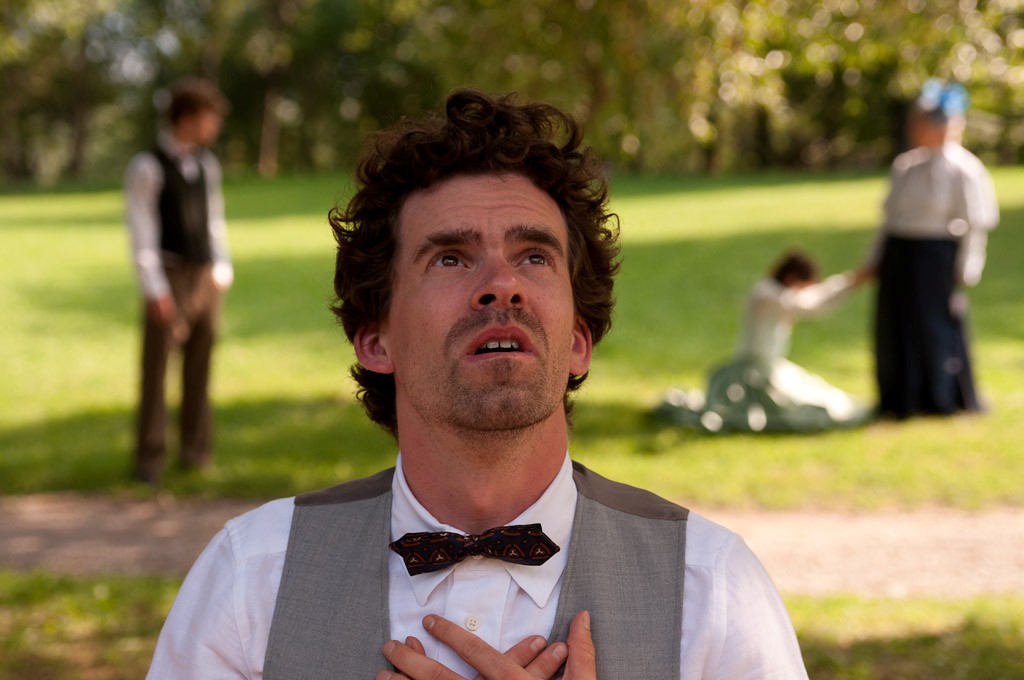
So it’s Valentine’s Day! Like many of us here, you may be panicking because life got in the way and you didn’t get your loved one something special like flowers or chocolates or even a card. So we at Shakespeare in the Ruff decided to offer you a little help. Our resident lover, hopeless romantic (he was playing Valentine in the picture above after all) and might we add single, Jesse Griffiths, has compiled his Top Ten List of romantic lines from Shakespeare. If you are in a pinch for an incredible romantic gesture, take a minute to memorize one of the lines below and wow your lover (or bestie), with your diction and line endings.
As an added bonus, if you can top Jesse’s selection with a love line of your own (does not have to be Shakespearean), Ruff will award you and a guest with VIP passes to our annual Ruffing It event coming up at the end of March. This will include free admission, reserved seats and a round of drinks on us! Post your love line in the comments section before the end of Valentine’s Day for your chance to win.
Happy Valentine’s Day from Shakespeare in the Ruff!
1. Romeo and Juliet
My bounty is as boundless as the sea,
My love as deep; the more I give to thee,
The more I have, for both are infinite.
2. The Tempest
Hear my soul speak:
The very instant that I saw you, did
My heart fly to your service.
3. As You Like It
If thou remember’st not the slightest folly
That ever love did make thee run into,
Thou hast not loved.
4. Sonnet 116
Love alters not with his brief hours and weeks,
But bears it out even to the edge of doom.
If this be error and upon me proved,
I never writ, nor no man ever loved.
5. Hamlet
Doubt thou the stars are fire;
Doubt that the sun doth move;
Doubt truth to be a liar;
But never doubt I love.
6. Love’s Labour’s Lost
When Love speaks, the voice of all the gods
Makes heaven drowsy with the harmony.
7. Venus and Adonis
Love is a spirit all compact of fire.
8. Romeo and Juliet (there had to be at least 2 from this play)
Love goes toward love as school-boys from their books,
But love from love, toward school with heavy looks.
9. Twelfth Night
If music be the food of love, play on;
Give me excess of it, that, surfeiting,
The appetite may sicken, and so die.
10. Cymbeline
I can express no kinder sign of love, than this kind kiss.
You got something better? We’d love to hear it.